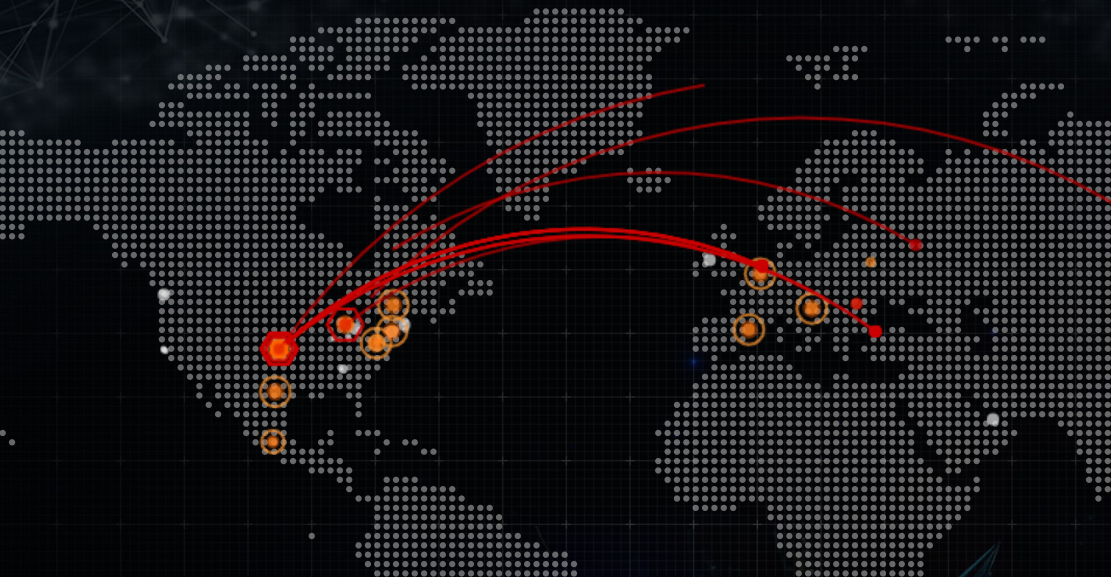Belgium is facing a severe shortage of IT professionals, with cybersecurity emerging as one of the most critical gaps. Yet regional authorities are working to put Belgium back on track, promoting the career path for both men and increasingly, women.
According to a 2025 survey on labour shortages conducted by ManpowerGroup, 72% of Belgian employers report difficulties in finding talent for open positions across all fields. In IT, however, this shortage is most acute, with 74% of employers saying that they are unable to find talent in this field. After engineering knowledge, IT skills are the most sought-after in the country.
Cybersecurity, still a relatively developing field, is growing in global significance. Recent research has shown that the lack of staffing in this field has a strong correlation with the growing number of hacking incidents targeting companies and personal data.
According to cybersecurity company Fortinet, 90% of companies globally surveyed declared that they had suffered a cyberattack directly attributable to a lack of staffing. Another 70% said that they recognised that reduced staffing in this field increased their exposure.
Growing threat

Credit: Bitdefender
Belgium, like many other countries, has experienced major cybersecurity incidents in the last few years. These often target sensitive industries, such as healthcare. In 2022, a major cyberattack targeting Wallonia’s Vivalia hospital group compromised patient data, shutting medical staff out of computer systems and postponing planned surgeries.
A 2021 cyberattack targeting Belgium’s Ministry of Defence crippled government internal communications systems and ultimately caused the government €2.25 million in damages.
This trend of growing cyber threats and persistent low uptake of new professionals has been described by analysts at consultancy firm EY as a looming crisis, with implications not only for economic competitiveness but also for national digital security.
“While technological advances constantly offer cybercriminals new opportunities for attack, companies are struggling to recruit the cyber talent that is so critical to their planning and defence,” explained Aurélie Jacquelin, senior manager at EY.
Skills vacuum

Credit: Dylan Carter/The Brussels Times
At both the federal and regional levels in Belgium, alarm bells are already beginning to ring. Under the Next Gen Belgium plans, the Federal Government will spend over €52 million towards strengthening Belgium’s cybersecurity capacities until 2026.
Industry sector federations have issued repeated warnings. The IT sector as a whole in Belgium is already desperate for workers. In Wallonia alone, some 14,500 IT specialists are needed, according to an analysis published in DataNews.
In cybersecurity, this skills vacuum is even more pressing. According to Agoria, which represents technology companies across Belgium, the cybersecurity workforce in Belgium currently numbers just over 6,400 professionals, with nearly 4,000 unfilled positions as of the end of 2022. According to some predictions, this number has reached 10,000 in 2024. The stretched workforce must compete with over 100 cyberattacks targeting Belgium every day.
“There’s some competition among organisations looking for cybersecurity skills to get the talent in, and it creates attractive salaries in the field, but it also creates a shortage for those who cannot compete,” Kayle Giroud, director of Common Good Initiatives at Global Cyber Alliance, told The Brussels Times. “It is really difficult to find cybersecurity talent when you compete with salaries from Microsoft and Google.”
This shortage is compounded by an ageing workforce: over 1,000 ICT professionals retire each year in Wallonia and Brussels. More than half of cybersecurity’s over 6,000 employees are aged between 30 and 55-years-old. Regional disparities remain stark: Wallonia counts just 455 cybersecurity professionals, there are 4,210 in Flanders and 1,720 in Brussels.
Wallonia leads the charge

Credit: AWEX/Wallonie.be
While around half of the 440 companies active in the field of cybersecurity in Belgium are based in Flanders, it is now the south of the country which is making cybersecurity its top priority, even integrating it into its brand for trade with the rest of Europe. In Wallonia, the Agence du Numérique has rolled out the Cyberwal by Digital Wallonia programme to centralise and promote cybersecurity initiatives.
"Wallonia has developed targeted initiatives to address this issue," Cassandre Laurent, director-general of Wallonia’s Agence du Numérique, told The Brussels Times at the Belgium stand of the InCyber Forum in Lille. "This includes training centres, highly engaged colleges, and universities offering a wide range of programmes, from vocational training to master’s degrees."
According to Laurent, the shortage of cybersecurity specialists is a global challenge. In 2022, the European Commission estimated a gap of 260,000-500,000 skilled workers in this field across its 27 Member States. To help boost the sector and attract new talent, Wallonia's cybersecurity leadership wants to carve out areas of specialisation to raise international visibility.
With the help of AWEX, the official Walloon export and foreign investment agency, Belgium roadshows its French-speaking cybersecurity talent abroad, notably at events in France, but also across the globe.
“The Walloon Government has fully recognised the critical importance of cybersecurity,” Laurent believes. “These missions promote Walloon excellence and expertise abroad, while also aiming to foster strategic partnerships.”
The French-speaking region is focusing on industrial and space-related cybersecurity, supported by the presence of the European Space Agency’s security centre in the Province of Luxembourg.
"Wallonia stands out for its high-level expertise in several areas, including risk governance, industrial cybersecurity, and space applications," said Laurent. “This strong momentum is initiated by the Belgian Ministry of Defence in the field of cybersecurity, which is generating positive impacts in Wallonia.
Related News
- Meet the women trying to flip the ratio in Belgian cybersecurity
- 'Firefighters of Belgian cyberspace': Meet the Centre for Cybersecurity
The private sector is also being supported by both French-speaking and Federal authorities to boost the visibility of cybersecurity. In an interview with The Brussels Times in March, Giroud spoke of the work of Women4Cyber, which roadshows the career path for potential female candidates.
Belgium is now looking to new techniques to encourage Belgians to retrain in this field. In Brussels, cybersecurity is now one of the latest training offered by Actiris in a bid to push jobseekers towards in-demand work profiles.
In partnership with Brussels’ Digital City, the Belgian capital organised an 89-day intensive training course to turn job seekers into candidates for a junior cybersecurity position. The most successful candidates gained privileged access to apply for a position leading a Belgian cybersecurity firm.

